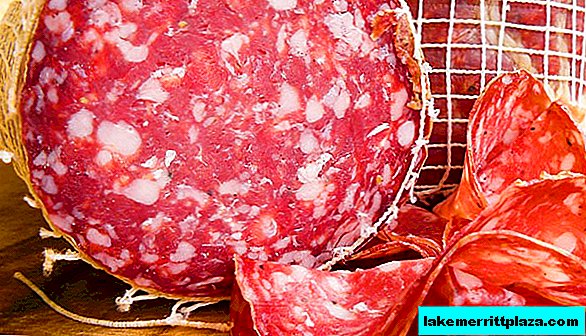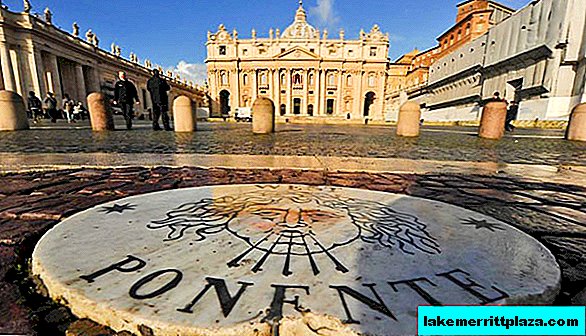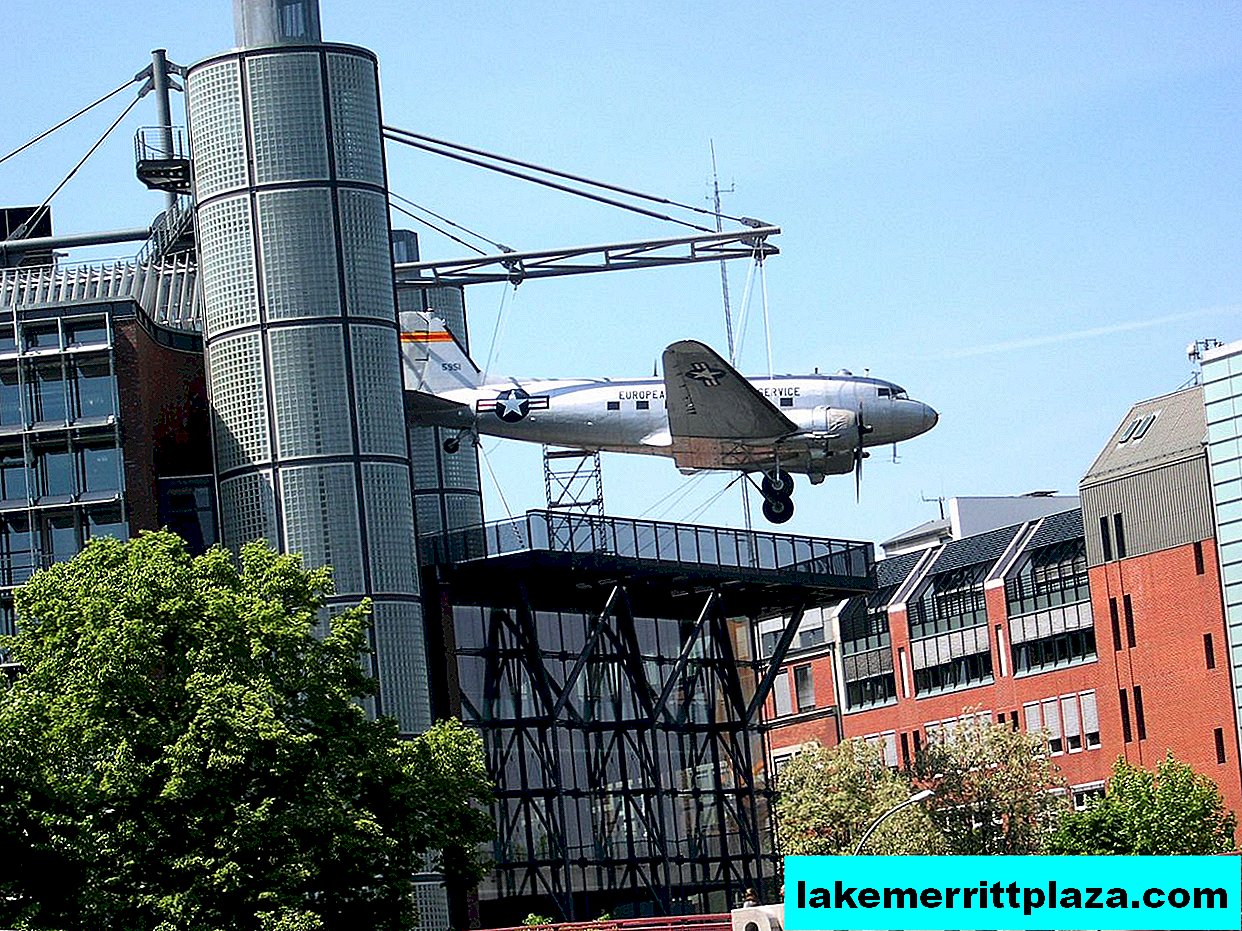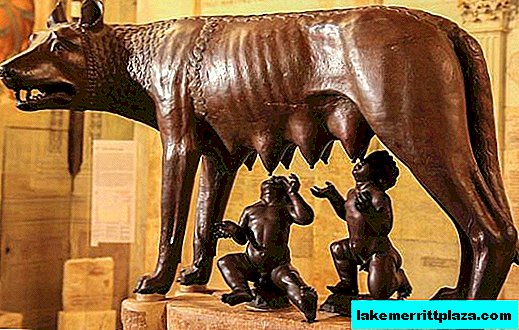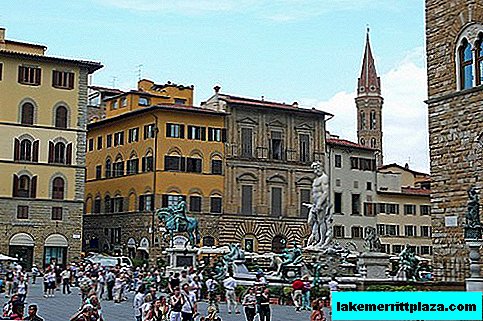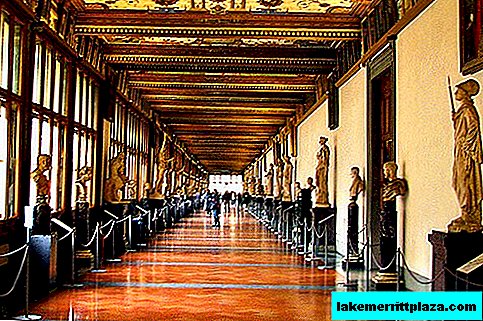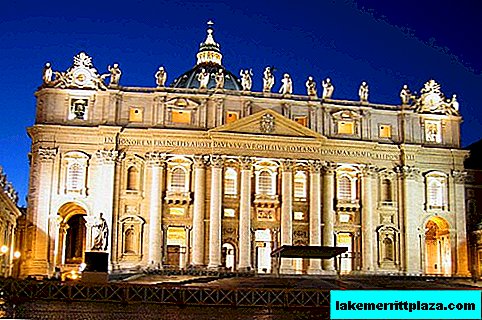Like a beautiful flower in the heavens, the earthly embodiment of which in the Middle Ages and the Renaissance was considered Florence, the Cathedral of Santa Maria del Fiore has a genuine, unique and elusive charm. Its octagonal dome, as if hovering over the historical center, can be seen on thousands of thousands of photographs from hundreds of angles - but it is always different. Santa Maria del Fiore in Florence is the most controversial history of the formation of the city, captured in stone.
Milestone Change Florentine
The Cathedral of Santa Maria del Fiore in Florence is a kind of symbol of a new world in which everyone is equal not only before God, but also before people. Quite unusual for the end of the 13th century, but it was quite expected for the inhabitants of Florence of the year 1296 - the year the construction of Santa Maria del Fiore began.
In 1293, in the likeness of laws that were in force 1500 years earlier in Athens, Sparta and Ancient Rome, the “Establishments of Justice” were adopted in the Florentine Republic, the world's first anti-feudal constitution.
According to her, real power completely passed to the people - elected representatives of 21 craft workshops. Even earlier, in 1289, serfdom was completely abolished in the state.
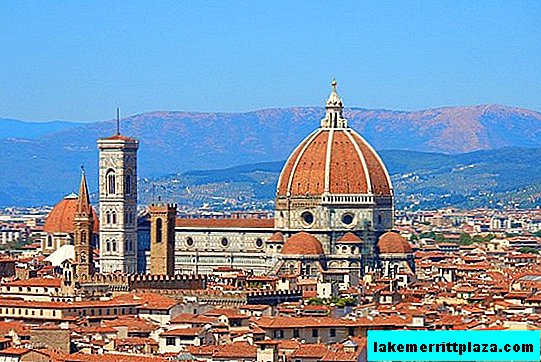
The construction of the Florentine Cathedral lasted about 600 years (1296 - 1887).
However, the Florentines still thought in hierarchical medieval categories. To believe in and accept the new order, they needed a tangible symbol of supreme power.
And what could be greater than God and the Virgin Mary? Worried and neighbors - Siena and Pisa. They were required, if not subordinated, then put in place, revealing a real miracle. And what could be more wonderful than a new church, in front of which the leaning Santa Maria Assunta and the Duomo di Siena would fade?
There were quite mundane reasons for the construction of the cathedral. The old Cathedral of Saint Reparata, the patroness of Florence, erected in the IV-V centuries, dilapidated and was quite small for a city with a population of 90,000 people.
By 1296, they began to gradually disassemble it. The remains of this temple with the tombs of popes and bishops were discovered by archaeologists in 1965 and were soon open for visitors.
Life to the Dome
So, in 1296, the famous architect and sculptor Arnolfo di Cambio embarked on a grandiose project Santa Maria del Fiore in Florencewhile working on the basilica of Santa Croce and the Palazzo Vecchio.
Before the consecration of the cathedral, Pope Eugene IV had exactly 140 years left ... but the project was really grand. For its basis, di Cambio took not already familiar to the eye Gothic temples, but the Pantheon in Rome.
Three wide naves were to converge in a high altar, over which the octagonal dome of Santa Maria del Fiore would rise, significantly exceeding the size of the dome of the cathedral baptistery of San Giovanni of the 11th-12th centuries, one of the most ancient architectural monuments of Florence.
Before his death in 1302, di Cambio managed to begin the construction of the facade of Santa Maria del Fiore, decorate its lower tier with sculptures and lay the foundation of the bell tower. Some of the sculptures were later lost, and the remaining ones were transferred to the workshops at the cathedral, where the Opera del Duomo Museum was opened in 1891.

Cathedral of Santa Maria del Fiore in Piazza Duomo in Florence
In 1331, an architect Santa Maria del Fiore in Florence Giotto was appointed, who began in 3 years to build a bell tower (Campanile).
According to the artist, the bas-reliefs of her facade were supposed to represent all spheres of human activity from the Creation of the world. But in 1337 he died, and Andrea Pisano first completed the campaign, and then Francesco Talenti, appointed architect of the cathedral at the end of the plague pandemic of 1349.
Sculptures for its second tier and for the facade of the cathedral a hundred years later were created by Donatello. Now in their place installed copies, and the originals are stored in the Opera del Duomo. The height of the campaign is 87.4 m, 414 steps lead up to the observation deck.
Talenti completely changed the design of Santa Maria del Fiore: the central nave was divided into 4 chapels, the transept and apse were expanded. By 1380, the main work was completed. The final length of the cathedral is 160 m, the transept width is 90 m.
By 1413, an octagonal vestibule for the dome was erected. During its construction, a special firing brick was used, which the great Filippo Brunelleschi suggested.
Everything ingenious is simple
But how to build dome of santa maria del fiore? For medieval architects, it was a mystery. Fears were expressed that for more than 100 years the walls of the temple, built under the guidance of various masters, received a roll and could not keep the dome.
The architects doubted that there was a real possibility of scaffolding and formwork at such a dizzying height, and that Signoria would finance such an adventure. Signoria was in no hurry to untie her wallet, but in 1418 she nevertheless announced a competition.

Fresco Vasari "The Last Judgment" is placed on the inner walls of the dome
According to a legend cited by Vasari, Brunelleschi, who was obsessed with the design of the dome from his youth, won this competition thanks to his resourcefulness, demonstrating the solution to another, but comic puzzle, later called the “Columbus Egg”. Indeed, the dome of the Florentine Cathedral, in contrast to the prototype - the spherical dome of the Pantheon in Rome - has an elongated shape, like an egg.
The design with an external diameter of 54.8 m and an internal diameter of 42 m, proposed by Brunelleschi, has a double shell supported by 8 main ribs and 16 auxiliary. In this case, all the ribs are connected by 6 horizontal rings and converge at an angle of 60 degrees to the peak-lamp with a height of 21 m.

The height of the dome of the Cathedral in Florence is 116.5 m
In order for the center of gravity of the “petals” of the arch to be inside the dome, the rows of terracotta bricks were not horizontal, but with a gradual slope from the arch to the top.
The dome of Santa Maria del Fiore was erected in 1434. In 1466, a lantern was completed, crowned in 1469 with a golden ball by Antonio Verrocchio, teacher of Leonardo. The external height of the dome is 116.5 m; you can get to its observation deck through 463 steps of a rather narrow staircase.
Santa Maria del Fiore inside and out
The facade, begun by di Cambio, was never completed, and in 1587, by order of the Duke of Tuscany, Francis I, the Medici destroyed it. For almost 300 years, the eyes of the townspeople and guests of Florence have been "pleased" with replaceable painted canvases.
The cathedral of Santa Maria del Fiore acquired its modern appearance only in 1887. Emilio de Fabrice became the author of the facade design.

The exterior walls of the Cathedral are faced with green, pink and white marble
For its facing, according to the laws of Gothic architecture and the Proto-Renaissance, a stone of various colors was used: white marble from Carrara, pink marble from Maremma and green serpentine from Prato. The facade, in the spirit of historicism was replete with details, the Florentines considered it vulgar, but eventually got used to it.
"As the Duomo is bright, flowery, joyful outside, so inside he struck me with poverty, dryness, darkness," wrote the philosopher and publicist Rozanov, who visited Florence in 1901. This is not so. Not poverty - but sacred greatness, not dryness, but concentration, not darkness - but reverent twilight.
Under these vaults, Giuliano Medici was killed and his brother, the Duke of Lorenzo, was saved, his walls remember the fiery sermons of Savonarola and the rustle of the incisor Michelangelo, who worked on “David” and never finished “Pieta”.

Mosaic floor in the Cathedral of Santa Maria del Fiore (XVI-XVII centuries)
It is worth taking a closer look at the marble mosaic floors of the 16th-17th centuries, and the stained-glass windows of the 15th century. Andrea del Castagno, Uccello and Ghirlandaio worked on the frescoes of the cathedral, and in 1579, thanks to Vasari and Zucchari, the dome of Santa Maria del Fiore was decorated with the monumental fresco "The Last Judgment".
Its creators, Giotto and Brunelleschi, are buried in the aisles of the temple, one of the walls is occupied by a return watch, designed by Ucccello in 1443.
How to get to Santa Maria del Fiore
The Cathedral of Santa Maria del Fiore, 116.5 meters high, is the most impressive building in the historic center of Florence.
To get to it from the Santa Maria Novella station, you need to go onto Via Panzani and then turn onto Via Cherretani. From the airport to the station, you can take the Vola in bus shuttle, which runs from 5:30 to 0:30. If the path runs from distant areas of the city, you will have to use buses No. 6.14, 17, 22, 23, 36, 37, 71.

Interior of the Cathedral of Santa Maria del Fiore
Opening hours and tickets
The cathedral is open daily from 10 to 16 hours, on Sunday and during religious holidays - from 13:30 to 16:45. On Thursday and Saturday, it can close half an hour or an hour earlier.
Those who are going to Florence in Holy Week should check in advance their working hours. For New Year, Christmas, Epiphany and Easter, the cathedral is closed.
You can get to the observation deck of the dome from 8:30 to 19 hours, on Saturdays - until 16:40. The campaign is open from 8:30 to 18:50, the baptistery from 8:15 to 10:15 and from 11:15 to 19:30.
entrance direct to the cathedral free, but it’s better to see the whole architectural ensemble of the Duomo square at once, including the Baptistery, the bell tower and the excavations of Santa Reparata. A single ticket can be purchased online, and it is valid for 3 days from the moment of visiting the first of the complex facilities.
You can check the current ticket prices and purchase them online on this page.
| Italy BlogoItaliano Routes ››› |
Useful articles about Florence
- Tours in Florence: Guide Review by BlogoItaliano
- Uffizi Gallery: Italy's most visited museum
- Florence: the most romantic hotels in the center
How to get to Florence
- How to get from Rome to Florence and from Florence to Rome
- How to get from Milan to Florence and from Florence to Milan
- How to get from Venice to Florence or from Florence to Venice
Photos by: Robert Nightingale, Min Liu, Steven Feather, Rodrigo Soldon, Cristian Viarisio.

